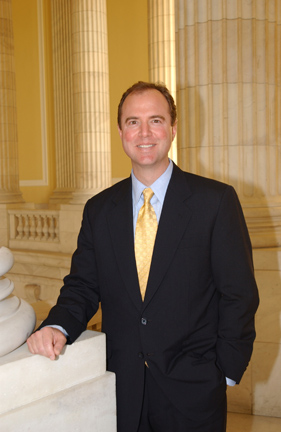Health Care is a Civil Right
The Fair Housing Act protects people from discrimination when they [seek to] buy a home. The Equal Employment Opportunity Act protects against discrimination when people seek employment. The Equal Educational Opportunities Act protects students from discrimination at school.
But there has yet to be a civil rights law that specifically protects people from discrimination when they seek medical care. And today the consequences of unequal and discriminatory health care have never been more apparent – or more deadly – for Black, Hispanic and Indigenous individuals.
According to the latest data from the CDC, Black individuals in the United States are just as likely as their White counterparts to contract COVID-19, but they’re nearly three times as likely to require hospitalization and twice as likely to die from the disease. Hispanic and Indigenous individuals are twice as likely to contract COVID-19 as White persons, with similarly staggering disparities in hospitalizations and deaths.
But the COVID-19 pandemic didn’t create these inequities – it just exposed the gaps in care that have existed for decades and exacerbated them. For example, it’s been widely reported that doctors are more likely to second guess or doubt Black patients when they report pain or anxiety. And Black women are more likely than White women to face serious complications during pregnancy.
As a result, Black, Hispanic and Indigenous individuals are disproportionately more likely to die than White individuals from a range of illnesses, from asthma to heart disease. Black women are more likely than White women to die from breast cancer and during childbirth. Hispanics suffer from higher rates of chronic diseases, including an 80% higher rate of diabetes. And today, Black and Hispanic Angelenos are getting vaccinated against COVID-19 at far lower rates than their White peers, putting them and their communities at higher risk for more hospitalization and deaths. New data shows that the pandemic slashed U.S. life expectancy, on average, by a year and a half – for Black and Hispanic individuals, it declined by three years.
At the end of the day, these disparities do not stem from biology but from bias. And so, just as Congress has sought to eliminate that bias in housing, employment and education, we must do the same for health care.
That’s why this week I reintroduced the Equal Health Care for All Act. When passed, this bill will treat health care as a civil right.
It will establish a definition for inequitable health care – and then use it as a basis to incentivize hospitals through grants and other payments to provide the highest quality of care while excluding bad actor providers from receiving Medicare or Medicaid.
It will establish an Office of Civil Rights and Health Equity within the Dept. of Health and Human Services and create a system for patients who have received inequitable care to file complaints that can be referred to the Dept. of Justice for enforcement. It will also create a Federal Health Equity Commission to track progress on reducing disparities.
Finally, it will require hospitals and health care providers to report their data broken down by demographic characteristics – including race, national origin, sex, sexual orientation, gender identity, disability status, age, and religion – so that we can construct the most accurate picture of disparities in our health care system and address them accordingly.
The past year-and-a-half has laid bare how systemic racism still permeates our society in myriad ways – but certainly none is more insidious, more dangerous, and more deadly than the inequities in health care. The Equal Health Care for All Act will help us bring this problem into sharp relief and address it and take another step forward in building a safer, healthier, more equitable America for all.

Rep. Adam Schiff (D-Burbank) represents California’s 28th Congressional District
in the U.S. House of Representatives.
